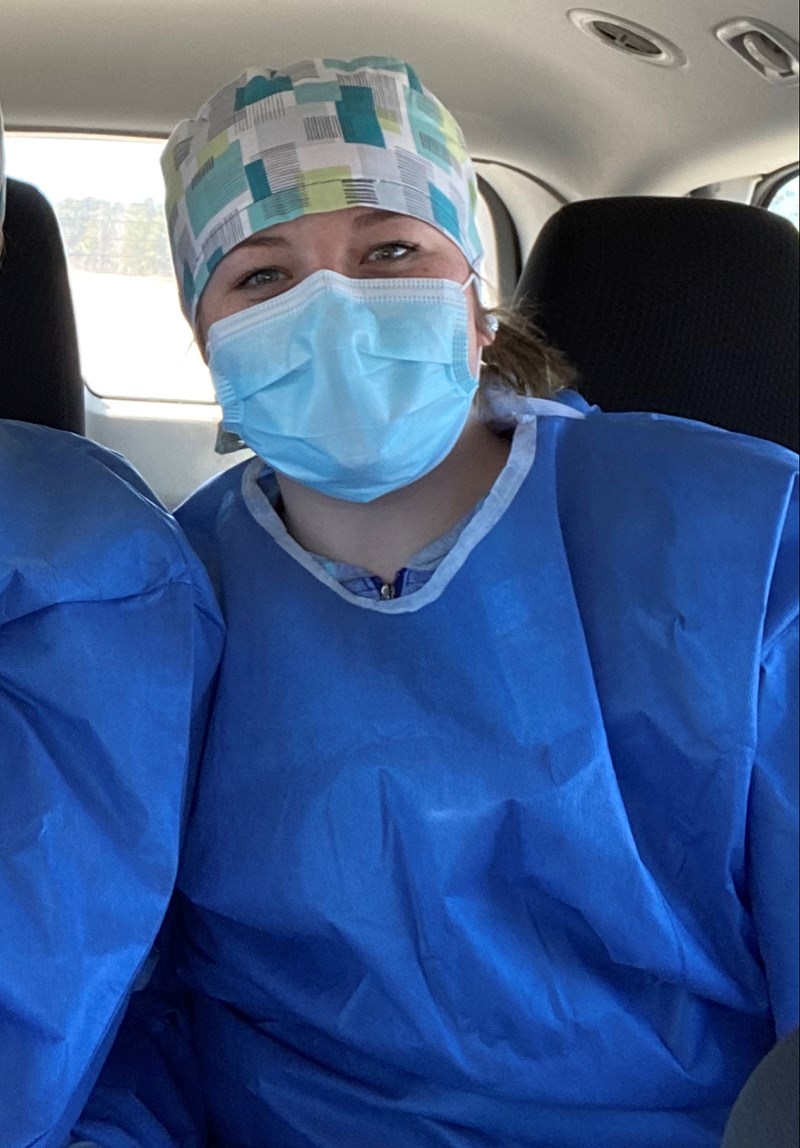Cassidy Siebert is a registered nurse, who has worked in the emergency room in Arcola Health Centre. When the Saskatchewan Health Authority (SHA) called out for nurses to help with the COVID-19 outbreak in northern Saskatchewan, Siebert didn’t think twice.
“SHA came and they were needing nurses to go up north to help with the outbreak in La Loche. I answered back immediately that I was willing to go help. And within 24 hours I heard back that I’d be one of the nurses going, so I got my bags together and I left the next morning,” recalled Siebert.
After a long drive she arrived in La Loche on May 1, and the next day she started her almost month-long mission.
“(Driving out there) I was extremely nervous and excited. It was like 50/50 of those emotions. I didn’t know what to expect, but I just knew that it was going to be something new and I had to be open-minded, and I had to be willing to be flexible and go where I was asked to go.”
Siebert believes she was the first nurse to actually get there, and almost immediately she got to work.
“It was a 13-hour drive. I started my first shift there on the 2nd of May. And I was right away shown their ER testing, how they do that, how their ER works there ... how the public health was doing things like contact tracing, community mobile testing, all that.”
Every day, she would go door to door, meet people and do the tests. During their time in La Loche, nurses from all over Saskatchewan worked 12-hour shifts seven days a week with an option to take a day off if they needed to. It wasn’t an easy job, but Siebert didn’t debate the decision to take on the role of a frontliner in this situation.
“I felt like it was important because I can’t imagine what it would be like if someone in this area was in that sort of position, to have an outbreak within your community like that. And I know that we would want help here. And I think it’s important that if you can go help, that nurses that were available should.”
Siebert said that people she got to work with, from other medical staff to their drivers to the community, in general, were great.
“It was quite evident that the people that were there were passionate, and they were caring, and they were really receptive to people coming to help because they needed it.”
There was a lot of adjusting and trial and error at the beginning of this journey. Some of the nurses who travelled to La Loche were those Siebert met before. They came from different areas of the province and also from different specialties and were working alongside the local staff.
“It was pretty cool to come together with the local nurses, the local community members and the local staff from the La Loche Health Centre. Everybody came together and brought their knowledge from what they know and what they do at home. And it made for a really good dynamic team.”
Siebert was out on the mobile testing team in the community. They’d go from house to house after contact tracing was done. Their main job was to swab people in the community in their homes, which turned out to be quite a difficult task.
“I didn’t realize just how much it was a scary thing for them to have these people show up at their door. They don’t know us. We are complete strangers. We are here with swabs, and it’s invasive and it’s something that has a lot of stigma around it, COVID swabbing,” recalled Siebert.
“So we really had to slow down to take time to get to know people in the community.”
Throughout these days she did a lot of tests. The teams would go out meeting people, explaining why they were there and perform the tests. Nurses were paired with local drivers, who knew the community well and also helped them with translation to and from the Denesuline language.
“Drivers, I can’t say enough good things about them,” said Siebert.
Nurses never left for work without personal protective equipment (PPE), and Siebert said they didn’t have any supply issues throughout the entire time working there. Vehicles were used to change PPE to prevent contamination.
After about four weeks, the La Loche community stepped onto the recovery path and the extra medical staff’s job was completed. So Siebert came home, bringing a valuable experience back.
Siebert had nothing but great words about her time in the northern community.
“We were treated so amazingly there. Overall it was welcoming, inviting, friendly, warm,” she said.
Her family was “extremely supportive” of her decision to go to La Loche and also pretty happy to see her back.
Siebert’s never had any kind of similar experience before, but now she said she feels more prepared if more calls are to come.



